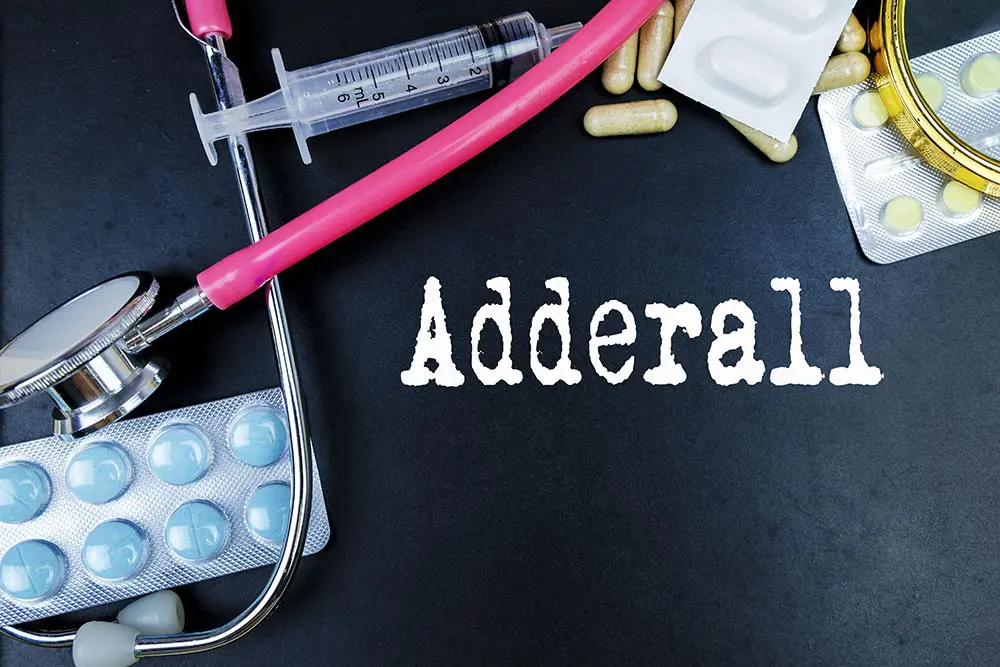Long-Term Effects of Adderall Us
Adderall is one of the most commonly prescribed prescription drugs in the USA, with studies showing that nearly 40 million prescriptions are written every year. The drug is also one of the most abused drugs in the USA, popular with students and professionals who use it to boost concentration and energy. The long-term effects of Adderall use can be extremely damaging.
Adderall combines amphetamines and dextroamphetamines to produce a stimulant that is prescribed to treat ADHD, narcolepsy, and sometimes depression, but also one that helps users to feel alert, energetic, and powerful. As a result, some studies show that between 6.1 and 30% of college students across the USA use it recreationally.
Adderall releases dopamine, serotonin, and norepinephrine in the brain, creating energy, concentration and happiness, suppressing the appetite, and allowing users to stay up for long periods of time without feeling fatigue. However, while Adderall is relatively safe to use in prescribed amounts, recreational users often develop a tolerance, leading them to take more of the drug, resulting in addiction and prolonged heavy use.
What Are The Long-Term Effects of Heavy Adderall Use?
Heavy Adderall use consists of taking more than the recommended dose of either instant release or extended release Adderall. The drug is prescribed in doses of 2.5 to 60 mg per day, but doses over 40mg per day qualify as ‘heavy’ usage and are addicting.
Over time, heavy use can cause chemical changes in the brain, physical damage to the brain, and organ and gastrointestinal damage.
Heavy Adderall Use and the Brain – Adderall increases concentration and energy levels by increasing the levels of serotonin, dopamine, and norepinephrine in the brain. These chemicals are part of the brain’s reward system, and over time, as the brain becomes accustomed to receiving them from an outside source, it may stop producing them in enough quantities to maintain normal energy and happiness levels when not on the drug. Prolonged heavy Adderall use also damages the dopaminergic nerve endings, making it more difficult for the brain to produce dopamine. This damage can be permanent, or can take years to heal.
As a result of these changes to the brain, someone who is addicted may find that they have trouble sleeping, concentrating, no motivation, and may feel depressed or irritable whenever they are not on the drug. These changes can be permanent, and users may find that they are depressed even years after ceasing to take the drug. Heavy users also experience emotional changes, where they experience low moods and even have trouble feeling pleasure, and may have mood swings of this nature for years after quitting the drug.
The most common mental side effects are:
- Depression
- Inability to concentrate
- Hostility
- Paranoia
- Insomnia
- Mood Swings

Increased Side Effects – The longer Adderall is abused, the more likely it is to cause physical side effects. Users may find that their body temperature, heart rate, and blood pressure all go up during use, and this eventually puts the user at risk of several long-term side effects which may be permanent. These include an increased risk of insomnia, abdominal pain from permanent or semi-permanent damage to the gastrointestinal tract, dangerous weight loss, hyperactivity, tremors, constant headaches, and even respiratory issues. Some users are also at risk for seizures and prolonged heart palpitation. For many, these symptoms will become progressively worse as the drug abuse continues.
Heart Problems – Adderall is a stimulant which typically increases the heart rate, body temperature, and blood pressure. This can put a strain on the heart, creating an increased risk of heart disease and a life-long increased risk of heart attack and stroke. Some users may be afflicted with blood pressure related dizziness, as their blood pressure drops too low or too high after using the drug.
Neurotoxicity – Adderall has the potential to cause neurotoxicity in some users. Prolonged heavy use of Adderall by adults can cause a buildup of central nervous system toxicity, resulting in adverse psychological effects and eventually psychosis and schizophrenia-like symptoms if drug use is not checked. Many people begin to see and hear things, which then progressively worsens until it is sustained as a permanent disorder.
Children – Adderall may inhibit growth for children and teens, which can cause long-term side effects.
Addiction – Addiction is a long-term psychological affect of any prolonged heavy substance use, and can create psychological and physical side effects. Addiction becomes an irresistible compulsion, which the addict may consider more important than their relationships, lifestyle, job or studies. Persons who are addicted to Adderall also take high risks, making accidents and reckless behavior more likely.
Getting Treatment for an Adderall Addiction

Adderall addiction or substance abuse can be detrimental to the mental and physical health of the user. Even long-term controlled use at a dose higher than 40 mg can create long term side effects including heart problems. If you or a loved one is addicted to Adderall, it is important that you consult a medical professional and go through an Adderall addiction treatment program to treat both the mental and physical symptoms of addiction.
Beginnings Treatment Centers drug addiction treatment centers are located in beautiful and sunny Orange County in Southern California, which has one of the best and most active recovery communities in the United States. If you or a loved one is currently experiencing a problem with addiction to Adderall or any other substance, please Contact Beginnings Treatment Centers Now.


